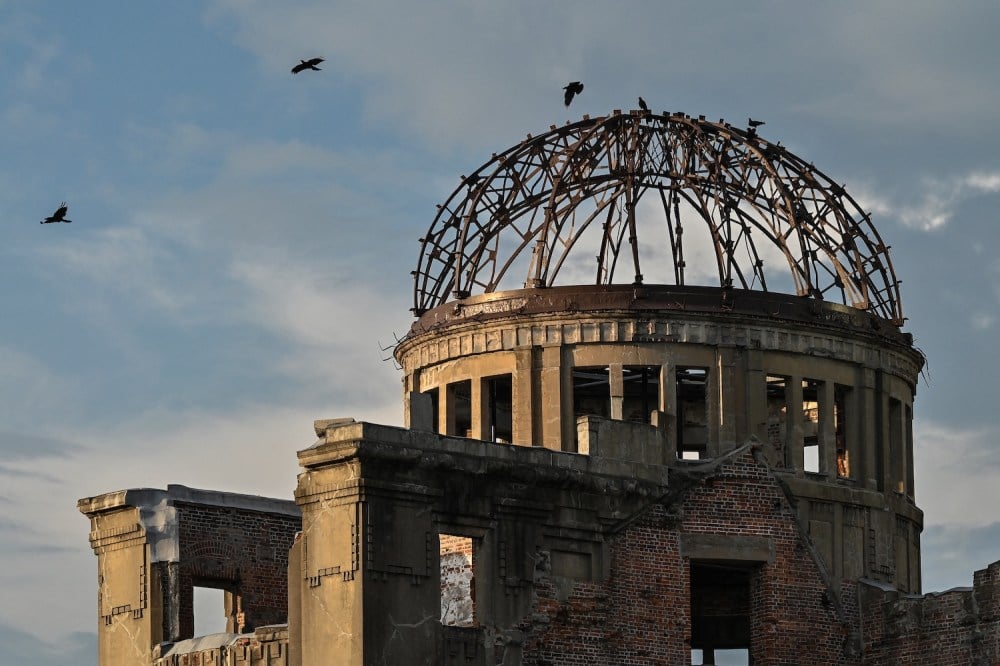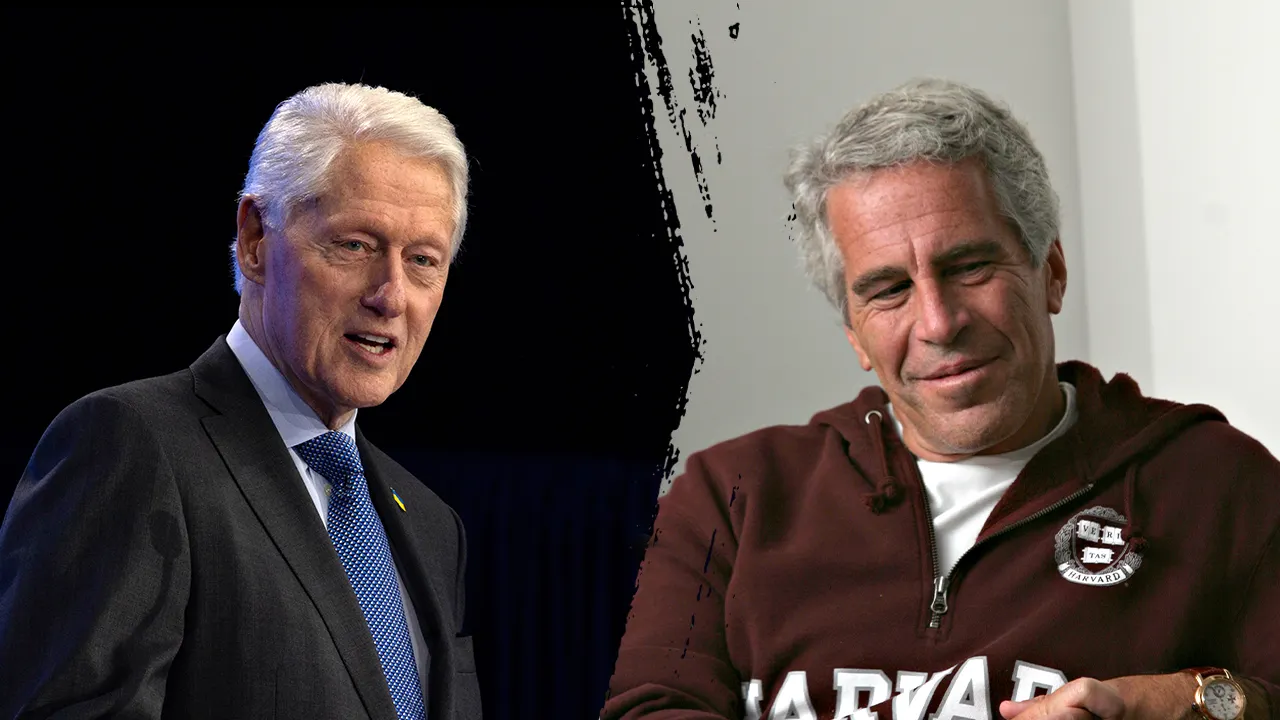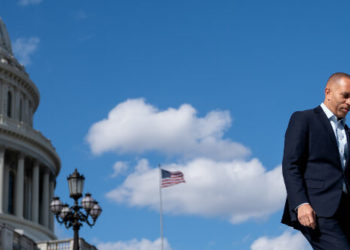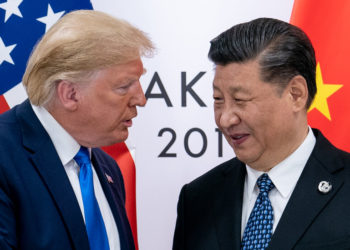Eighty years ago in the Japanese cities of Hiroshima and Nagasaki, more than 200,000 people were killed in ways that nearly defy imagination: incinerated, burned alive, boiled in rivers, or slowly consumed by radiation sickness. Over the past decades, the international community has attempted to establish safeguards against nuclear proliferation and the use of nuclear weapons, a mission best articulated by U.S. President Ronald Reagan, who said that a nuclear war “cannot be won and must never be fought.”
Today, however, with resurgent nuclear brinkmanship and proliferation, it is easy to wonder whether developments in international law matter much at all, let alone enough to stem a nuclear launch. Both the United States and Russia have withdrawn from the Intermediate Range Nuclear Forces Treaty. Veiled nuclear threats are increasing between Russia and the United States, and Saudi Arabia has signaled an interest in arming. Even non-nuclear states in Europe, fearful of losing access to a U.S. nuclear umbrella with U.S. President Donald Trump pulling back from NATO, have begun considering acquiring nuclear weapons themselves. It is no wonder that Doreen Horschig and Heather Williams argued, even before Trump returned to office, that the nuclear order is “crumbling.”
It is true that the nonproliferation regime is under strain. When scholars refer to this regime, they are typically talking about the Nuclear Non-Proliferation Treaty (NPT), which 191 states—including the five original nuclear ones—have signed and ratified. The NPT permits the five to possess nuclear weapons on the condition that they will work together to prevent others from obtaining them and take steps toward disarmament; non-nuclear states pledged not to acquire the weapons in exchange for the right to peaceful nuclear technology. Today, however, key nuclear states are slowing or reversing decades of progress toward disarmament. These actions make the world more dangerous partly because they raise the likelihood of violent counter-proliferation tactics, like the U.S. and Israeli attacks on Iran’s nuclear sites this summer.
But this doesn’t necessarily mean, as some suggest, that a nuclear exchange is now likelier than it was during the Cold War. That’s because another set of international laws have strengthened over time, alongside the nuclear nonproliferation regime: the ones against the use of nuclear weapons. The nuclear taboo—the moral stigma against actually using nuclear weapons—is grounded not just in the NPT (or the realities of nuclear deterrence) but increasingly also in humanitarian law.
In 1968, when the NPT was signed, such humanitarian law norms were still in their infancy. Even after the horrors of World War II, the 1949 Geneva Conventions didn’t address the use of weapons in combat; they were limited to the treatment of civilians, prisoners of war, and military personnel. It wasn’t until 1977, when the first two Additional Protocols to the Geneva Conventions were signed, that important rules governing the use of weapons were added to the treaties.
The first of these was Article 36 of Additional Protocol I, which required states to determine whether newly developed weapons were consistent with two important principles of humanitarian law: the prohibition on arms that cause superfluous injury or unnecessary suffering, which was first codified in the late 19th century to ban projectiles like exploding bullets; and the prohibition against weapons that could not be used in a discriminate manner—that is, directed away from civilians and toward legitimate military targets only—which included the question of whether their effects could be controlled.
The second was a set of rules in Article 51 of Additional Protocol I, which prohibited and defined indiscriminate attacks, including attacks carried out with weapons whose effects, by their very nature—such as fire or radiation—could not be directed away from civilians or limited once unleashed. Even the lowest-yield nuclear weapons today would certainly fall into that category: According to Nukemap, a tactical nuclear weapon detonated over a military target like the U.S. Defense Department would affect a mile or so around Washington, D.C., and Arlington, Virginia, and cause approximately 17,000 civilian deaths and injuries. Indiscriminate attacks were outlawed to avoid that exact outcome.
These legal innovations unleashed a spate of humanitarian disarmament initiatives over the next decades. The Convention on Conventional Weapons, signed in 1981, further codified norms against superfluous injury and indiscriminate weapons, specifically banning weapons such as bullets filled with undetectable fragments and the use of lasers designed to cause permanent blindness. This was followed by norm-building efforts to comprehensively prohibit the use of chemical weapons (1993), anti-personnel landmines (1997), and cluster munitions (2008) because their indiscriminate and inhumane effects could not be justified by their military utility.
No such comprehensive ban on the use of nuclear weapons emerged during this period, however. Nonetheless, customary law has gradually overruled the idea that states could simply opt out of the 1977 Additional Protocol’s prohibition on indiscriminate attacks, which is now considered binding on all states, even non-parties to that treaty. The law on reprisals against civilians also evolved during this period, meaning that targeting civilians is illegal even if an enemy attacks a state’s own civilians first.
These normative shifts—and the concerted role of global civil society during this period—threw plans for general nuclear war left over from the earlier Cold War era into a different kind of relief. Acknowledgement of the humanitarian effects of nuclear use culminated with the Treaty on the Prohibition of Nuclear Weapons (TPNW), which was signed in 2017. Modeled on the treaties comprehensively banning landmines and cluster munitions rather than the NPT, the TPNW is a humanitarian disarmament treaty prohibiting the development, possession, and use of nuclear weapons because of their inherently indiscriminate character. At least 94 states have signed the treaty, and 73 have ratified it. Advocates and some scholars have argued that the norms complement and strengthen the NPT, as well as contribute to the moral stigma against nuclear weapons, because even the countries that have not signed the treaty are bound by and largely agree with the prohibitions on indiscriminate attacks.
Others doubt the power of the TPNW and even view it as counterproductive to nonproliferation and disarmament efforts. Notably, no nuclear state has signed, nor have many states who benefit from extended deterrence, including Japan, whose civilian population has experienced the terrible effects of nuclear war.
Whether or not any of that is true as regards disarmament and nonproliferation norms, one thing is certain: The nuclear taboo seems resilient to these shifts and is likely getting stronger due to these international legal developments, even in places that reject the treaty, like the United States.
Survey data from Human Security Lab, the research lab that I run at University of Massachusetts-Amherst, shows that the percentage of Americans who consider the use of nuclear weapons to be a violation of international law has held steady at 83 percent since 2017, even as nuclear brinkmanship has returned and the NPT has wavered. And in survey experiments where civilians are given information on international law or reminded of the inhumane effects of nuclear weapons (as the media has been focused on recently), their willingness to support the use of nuclear weapons and indiscriminate attacks—even in scenarios designed to incentivize that use—decreases.
But perhaps the best indicator that the nuclear non-use norm is stronger than it may appear, at least in the United States, is the fact that significant numbers of military-trained Americans now see nuclear weapons use—especially if the United States has not first absorbed a nuclear strike—as a war crime. New polling data from my lab, published in July in the Bulletin of the Atomic Scientists, shows U.S. troops and veterans view nuclear weapons use against populated areas as unlawful in roughly equal proportions to the general U.S. population.
Moreover, military-trained Americans trust the president’s sole nuclear launch authority and wide-ranging discretion over nuclear weapons even less than the general population: Only 31 percent believe the commander in chief should be able to launch a nuclear weapon whenever they decide it’s necessary. The trust that exists plummets in times of actual nuclear security crises, as our data showed during the recent 12-day war between Israel and Iran: The number of active-duty military and veterans who said nuclear weapons should be used not at the president’s discretion but only in “extreme and limited circumstances” rose from 48 to 61 percent during the crisis. A steady 21 percent said nuclear weapons should never be used at all. Furthermore, the number who support specific kinds of limitations (such as oversight over the president or a no-first-use norm) has increased across the board since Trump took office. This dovetails with renewed domestic efforts to introduce currently nonexistent limitations on U.S. nuclear use.
While our research is still underway, preliminary evidence suggests that the global community’s opprobrium toward nuclear weapons in the form of the TPNW has influenced military-trained Americans’ attitudes against the idea that nuclear weapons could ever be used lawfully. Our experimental data shows simply learning about the TPNW causes shifts in both how military personnel answer questions on nuclear legality and how they explain their answers.
Military-trained survey respondents also appeared to care deeply about the indiscriminate effects of such weapons. When asked to describe the best reasons to never use a nuclear weapon, the most common answers given by current and former troops were that they would “would affect civilians indiscriminately” and “would cause environmental catastrophe,” and the general population also felt similarly. Also like the general public, approximately a third of military-trained Americans showed concern for the fact that nuclear weapons would cause “unnecessary suffering to troops,” even if they were used away from civilian areas. They also referenced nuclear weapons and other indiscriminate or inhumane weapons as being “banned by international treaties.” In fact, service members were even more likely than the public to state that protecting the nuclear non-use norm itself was a reason never to use such a weapon.
Military perceptions of what is unlawful matter because service members are required to disobey manifestly unlawful orders—including the use of indiscriminate weapons—and they can be prosecute if they do not. Human Security Lab’s newest survey data—this time with a sample of just active-duty military—shows even just thinking about the concept of manifestly unlawful orders before answering a question on nuclear use reduces willingness to obey a hypothetical nuclear launch order from 69 to 54 percent.
To be sure, these numbers also suggest that many others would follow such an order. And, of course, what matters is the attitudes of the individuals actually placed in the nuclear chain of command rather than the average private, colonel, or general. It also remains to be studied whether this finding extends to the militaries of other nuclear states.
But since the United States is a hard case, with its relatively permissive nuclear doctrine and sense of exceptionalism, it is reasonable to think it might. Studies of Russian public opinion on nuclear weapons have found similar levels of concern and caution, as is evident in NATO countries. China, for its part, already espouses a no-first-use doctrine and is now pushing for a new treaty process to codify such a norm.
With today’s international laws, global criminal justice architecture, and humanitarian standards on indiscriminate weapons, it may even be the case that fears of proliferation and the “crumbling” of the earlier nuclear order could actually accelerate international norm-building to restrict nuclear use. Even if nuclear states never sign on to such efforts, the stigma created by instruments like the TPNW galvanizes civil action. More importantly, it shapes the moral judgments of those in a position to burn civilian cities to the ground.
The post Why the Nuclear Taboo Is Stronger Than Ever appeared first on Foreign Policy.




